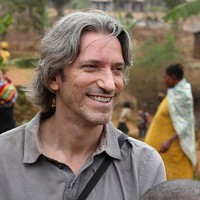Is the Congo government bad? Or do the rebels have a case?
This question originally appeared on Quora.  Answer by John Prendergast, Activist. Author. Enough Project & Satellite Sentinel Project Co-Founder. Special Advisor - Not On Our Watch. http://www.enoughproject.org/
Answer by John Prendergast, Activist. Author. Enough Project & Satellite Sentinel Project Co-Founder. Special Advisor - Not On Our Watch. http://www.enoughproject.org/
Since independence in 1960, the government of Congo has only had four heads of state, including the thirty one year reign of Mobutu Sese Seko from 1965-1997. While each leader's rule can be characterized as corrupt and self-interested, the impact of Mobutu's legacy cannot be overstated on modern day Congo. The corruption, patronage, and marginalization of the population that Mobutu normalized was multi-generational and still defines Congolese lawmakers and citizens expectations of the role of government in Congo.
Today, the Government of Congo is fundamentally dysfunctional and unable to extend state control to the entirety of its country--roughly the size of Western Europe. Due to a history of external manipulation as well as internal corruption and mismanagement, it has become entrenched with systemic barriers to good governance and the provision of basic state services to its citizens. Challenges such as a lack of infrastructure, poor education, poor public health, weak and corrupted state security services, and endemic government corruption create an environment that stifles opportunities for employment, education, and economic empowerment. While there remains a small section of society that makes up the highly privileged ruling elite, the majority of the population is disenfranchised and exists in extreme conditions of poverty with little opportunity for advancement.
The gap between the powerful and powerless, therefore, creates deep divisions and continued instability in the country--politically, economically, and militarily. The government of Congo, like any world government, is filled with the corrupt, the virtuous, the opportunistic, and the reformer. Yet, it is a product of its own history; and also a collective failure of its own present to create a democratic, representative form of government, able to extend benefits to both the state and its citizens.
There are roughly 23 different rebel groups that currently exist in the Congo. Virtually none of them has a cohesive or defensible political platform. Their reasons for existence range from criminal enterprise to self-preservation. However, no group with guns is blameless for conflict, violence, rape, impunity and instability in Congo. Is there a case to be made against the failure of the state to deliver basic services, peace and security? Yes. Is taking up arms and exacerbating violent conflict responsible for the death of millions a legitimate medium to make the case? That answer is more complex than yes or no. The Congolese army has been accused of committing war crimes and crimes against humanity by the UN, US government, and groups like Human Rights Watch and Amnesty International, including arbitrary detention, unlawful killings, torture, and in particular widespread sexual violence. Low- and medium-ranked army soldiers are on trial now for rape as a war crime in military tribunals in the east.
More questions on Democratic Republic of the Congo:
